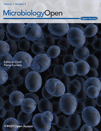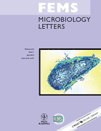
WORLD JOURNAL OF MICROBIOLOGY & BIOTECHNOLOGY
Scope & Guideline
Fostering Interdisciplinary Insights in Microbiology and Biotechnology
Introduction
Aims and Scopes
- Microbial Interactions and Ecology:
Research on microbial interactions, including symbiosis, competition, and community dynamics in various environments, such as soil, water, and host organisms. - Biotechnology Applications:
Exploration of biotechnological applications of microorganisms in areas such as bioremediation, biofuels, pharmaceuticals, and food production. - Microbial Metabolism and Enzyme Engineering:
Studies focusing on microbial metabolic pathways, enzyme production, and the engineering of microbes for enhanced metabolite production. - Pathogenic Microbiology and Antimicrobial Resistance:
Research investigating pathogenic microorganisms, their mechanisms of virulence, and the development of resistance to antimicrobial agents. - Bioprocess Optimization:
Innovations in the optimization of bioprocesses for microbial production, including fermentation techniques and bioreactor designs. - Microbial Diversity and Genomics:
Characterization of microbial diversity through genomic, metagenomic, and transcriptomic approaches to understand their ecological roles and biotechnological potentials.
Trending and Emerging
- Synthetic Biology and Genetic Engineering:
Increasing interest in the application of synthetic biology for the design and engineering of microbial strains for specific functions, including the production of valuable compounds. - Microbial Bioremediation:
A growing focus on using microorganisms for environmental cleanup, particularly in the remediation of pollutants and heavy metals, as environmental concerns become more pressing. - Microbiome Studies:
Research on the human microbiome and its implications for health and disease is emerging as a significant area, with studies investigating the role of microbiota in various health conditions. - Probiotics and Functional Foods:
Rising interest in probiotics and their health benefits, leading to research on microbial strains with potential applications in functional foods and dietary supplements. - Nanotechnology in Microbiology:
The integration of nanotechnology with microbiological applications is on the rise, particularly in developing novel antimicrobial agents and biosensors.
Declining or Waning
- Traditional Antibiotic Research:
Research focusing on traditional antibiotics and their mechanisms is declining in favor of exploring novel antimicrobial agents and alternative strategies, such as bacteriocins and phage therapy. - Classical Microbiological Techniques:
Studies employing classical microbiological techniques, like culture-dependent methods, are becoming less frequent as modern genomic and metagenomic approaches gain popularity. - Basic Microbial Taxonomy:
Research centered solely on microbial taxonomy without functional or ecological implications is waning, as more studies focus on the functional roles of microorganisms in their environments.
Similar Journals

MicrobiologyOpen
Empowering discovery and collaboration in microbiology.MicrobiologyOpen is a prestigious, open access journal published by WILEY, dedicated to advancing the field of microbiology. Since its inception in 2012, this journal has firmly established itself as a significant platform for researchers, professionals, and students alike, facilitating the dissemination of high-quality research findings across a wide range of microbiological disciplines. With an impressive impact factor and a ranking in the 76th percentile of Scopus for immunology and microbiology, MicrobiologyOpen offers a robust forum for innovative studies, reviews, and compelling insights that push the boundaries of scientific understanding. The journal's commitment to open access ensures that groundbreaking research is freely available to the global community, fostering collaboration and knowledge-sharing. As it continues to evolve until 2024, MicrobiologyOpen remains pivotal for anyone looking to stay at the forefront of microbiological research.

FOLIA MICROBIOLOGICA
Fostering Knowledge for Future Microbiologists.FOLIA MICROBIOLOGICA is a distinguished academic journal published by SPRINGER, focusing on the intricate realms of microbiology and its contributions to medicine. Since its inception in 1957, the journal has been a vital platform for disseminating pioneering research, addressing contemporary challenges in the field while facilitating discourse among researchers, clinicians, and students alike. With an ISSN of 0015-5632 and an E-ISSN of 1874-9356, FOLIA MICROBIOLOGICA publishes original articles, reviews, and critical insights that span not only traditional microbiological studies but also innovative applications in immunology and biotechnology. The journal is categorized within the esteemed Q2 tier in Medicine (Miscellaneous) and holds a Q3 rating in Microbiology as of 2023, reflecting its significant impact and relevance in the scientific community. Although it does not currently offer open access, it remains a respected resource, enabling professionals and students to keep abreast of advancements from its base in the Netherlands. With a strong commitment to quality and rigorous peer-review, FOLIA MICROBIOLOGICA serves as an essential repository of knowledge, fostering the next generation of microbiologists and medical practitioners.

JOURNAL OF BASIC MICROBIOLOGY
Fostering Excellence in Microbiology StudiesJOURNAL OF BASIC MICROBIOLOGY is a premier publication in the field of microbiology, published by WILEY since 1985. With a significant presence in Germany, this journal encompasses a wide spectrum of research topics, focusing on applied microbiology and biotechnology as well as diverse areas within medicine. Holding a commendable Q2 ranking in both its categories for 2023, it plays a crucial role in disseminating innovative findings and methodologies to the community. Researchers will find it to be an essential platform for sharing high-quality work, where it currently stands at rank #47 in the applied microbiology and biotechnology category, representing the 63rd percentile among international journals. The JOURNAL OF BASIC MICROBIOLOGY caters to a growing audience of professionals and students, offering insights essential for advancement in microbiological research and its applications. While it does not currently offer an Open Access option, it remains an influential outlet for academic excellence, continuously contributing to the development of the field through its rigorous peer-reviewed articles.

Microbial Physiology
Fostering Discoveries for Health and SustainabilityMicrobial Physiology is a premier, peer-reviewed journal published by KARGER, dedicated to advancing the field of microbiology through innovative research and reviews. With an ISSN of 2673-1665 and an E-ISSN of 2673-1673, the journal stands out in the academic landscape having established a strong track record since its inception in 2020, converging its scope until 2024. It proudly holds a Q2 category ranking in several key areas including Applied Microbiology and Biotechnology, Biochemistry, and Microbiology, making it an essential resource for researchers and professionals in these disciplines. The journal provides open access options to ensure that cutting-edge findings are widely disseminated, fostering collaboration and knowledge sharing. As a vital contributor to the ongoing discourse in microbial physiology, the journal serves as a platform for novel discoveries and methodologies that can significantly impact health, industry, and environmental sustainability. Located in Basel, Switzerland, it brings together a global community of scholars eager to further explore the complexities of microbial life.

BIOTECHNOLOGY LETTERS
Advancing the Frontiers of Biotechnology ResearchBIOTECHNOLOGY LETTERS is a prestigious peer-reviewed journal that has been at the forefront of biotechnology research since its inception in 1979. Published by Springer, this esteemed journal serves as a vital platform for disseminating cutting-edge research in the fields of applied microbiology, bioengineering, and biotechnology, with a focus on innovative methodologies and technologies. With an impact factor reflecting its critical contribution to the discipline, BIOTECHNOLOGY LETTERS resides in the Q2 and Q3 tiers of various scientific categories, placing it among the notable journals in the biotechnological landscape. Although it offers traditional access options and does not feature open access, the journal embraces a global readership, encouraging submissions from researchers, professionals, and students eager to explore the dynamic advancements in biotechnology. Situated in the Netherlands, it continues to shape the future of the field through relevant, impactful research that addresses contemporary challenges and opportunities in medicine and beyond.

APPLIED MICROBIOLOGY AND BIOTECHNOLOGY
Empowering discoveries that shape our world.Applied Microbiology and Biotechnology, an esteemed journal published by Springer, serves as a vital resource in the domains of microbiology and biotechnology. With an impressive impact factor reflecting its quality, the journal holds Q1 rankings in various categories including Applied Microbiology and Biotechnology, Biotechnology, and Medicine (Miscellaneous) as of 2023. Spanning the years from 1984 to 2024, it underscores its commitment to disseminating groundbreaking research that addresses pressing challenges in health, agriculture, and environmental sustainability. The journal is rigorously indexed and holds respectable positions in Scopus rankings, notably within the top 15% of Applied Microbiology and Biotechnology and the top 15% in Biochemistry, Genetics, and Molecular Biology. Although it is not Open Access, its comprehensive articles, reviews, and short communications are indispensable for researchers, professionals, and students eager to advance their understanding and application of microbial processes and biotechnological innovations in real-world contexts.

JOURNAL OF MICROBIOLOGY
Innovating biotechnology through microbiological research.JOURNAL OF MICROBIOLOGY, published by the Microbiological Society Korea, is a prestigious peer-reviewed journal dedicated to the advancement of knowledge in the fields of microbiology, applied microbiology, and biotechnology. Established in 1996, this journal serves as a vital platform for researchers and professionals from around the globe to disseminate their findings and engage in multidisciplinary discussions pertaining to microbial sciences. With an H-index that reflects its impact, the journal holds a commendable Q2 ranking in key categories including Applied Microbiology and Biotechnology, as well as Medicine (Miscellaneous), which underscores its significance in the academic community. Despite being a subscription-based journal, the JOURNAL OF MICROBIOLOGY aims to contribute to the understanding of microbial processes and their applications, facilitating advancements that are essential in health, industry, and environmental sciences. Researchers, students, and practitioners are encouraged to explore this rich resource for the latest research and trends in microbiology.

FEMS MICROBIOLOGY LETTERS
Connecting Research to the Microbial WorldFEMS Microbiology Letters, published by Oxford University Press, is a prestigious international journal dedicated to advancing the understanding of microbiology through concise and impactful research articles. With an ISSN of 0378-1097 and E-ISSN 1574-6968, this journal encompasses a wide range of topics within the fields of genetics, microbiology, and molecular biology, achieving a notable Q3 quartile ranking in these categories as of 2023. As an essential platform for researchers, professionals, and students, FEMS Microbiology Letters invites submissions that contribute valuable insights into microbial behaviors, genetic mechanisms, and innovative methodologies pivotal in the study of microbiology. Although it is not an open-access publication, the journal's rigorous editorial standards ensure high-quality content that is relevant and significant to its audience, furthering scholarly dialogue and collaboration in the vibrant field of microbiological research.

CURRENT MICROBIOLOGY
Fostering Excellence in Microbiological ScholarshipCURRENT MICROBIOLOGY, published by SPRINGER, is a renowned journal that serves as a critical platform for the dissemination of cutting-edge research in the field of microbiology. With an ISSN of 0343-8651 and an E-ISSN of 1432-0991, this journal contributes significantly to the scientific community by covering a diverse range of topics from applied microbiology and biotechnology to various aspects of medicine. Currently operating an impact factor that places it within the Q2 quartile in both applied microbiology and biotechnology and medicine (miscellaneous), along with a Q3 ranking in microbiology, CURRENT MICROBIOLOGY is recognized for its valuable contributions to these dynamic fields. This journal, which has documented the evolution of microbiological research since its inception in 1978, provides an essential venue for researchers, professionals, and students alike to explore innovative studies and advances. Although it does not offer open access, the journal remains a pivotal resource within its category, complementing the ongoing growth and exploration of microbiology from its headquarters at One New York Plaza, Suite 4600, New York, NY 10004, United States. Its Scopus rankings highlight its reputable standing, making it a key publication for anyone aiming to stay at the forefront of microbiological science.

INDIAN JOURNAL OF MICROBIOLOGY
Empowering Discoveries in Microbial ScienceINDIAN JOURNAL OF MICROBIOLOGY, published by Springer, serves as a vital platform for the dissemination of cutting-edge research in the field of microbiology. With an ISSN of 0046-8991 and an E-ISSN of 0973-7715, this esteemed journal invites contributions that span various disciplines within microbiology, encompassing both fundamental studies and applied research that can impact health, environment, and industry. Recognized in the Q3 category in Microbiology for 2023, and ranking #80 out of 182 in Scopus’ Microbiology category, it reflects its commitment to quality and significance in the academic community. Authors and researchers benefit from the journal's comprehensive review process, which enhances the visibility and reach of their work. While no open access options are currently offered, the INDIAN JOURNAL OF MICROBIOLOGY remains a premier choice for those aiming to contribute to the ongoing dialogue in microbiological studies, ensuring that knowledge continues to evolve and thrive.